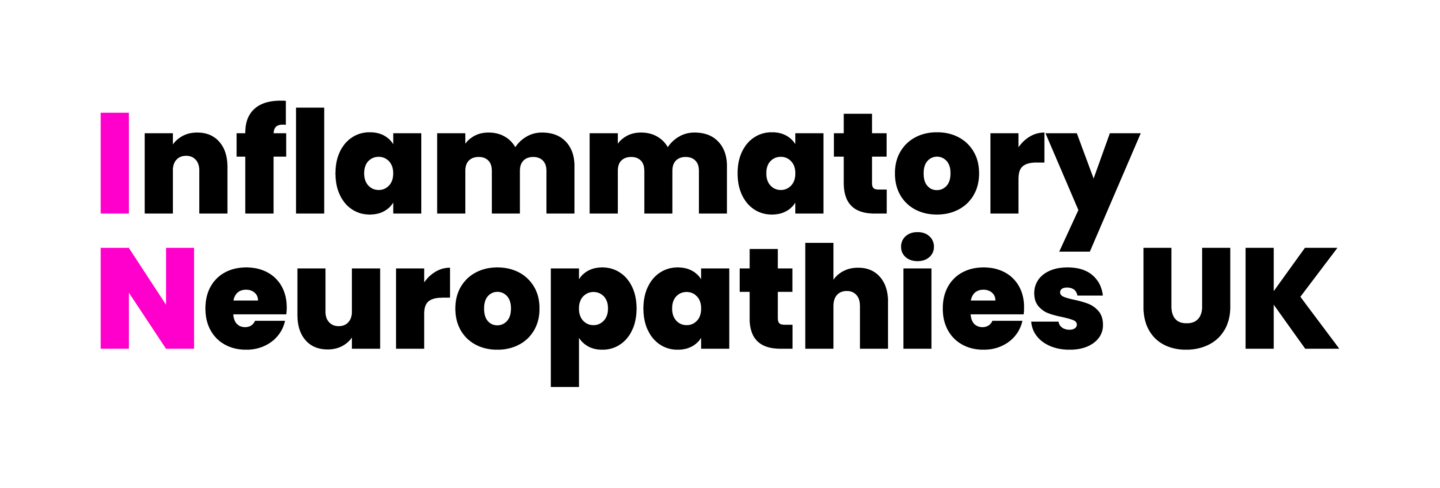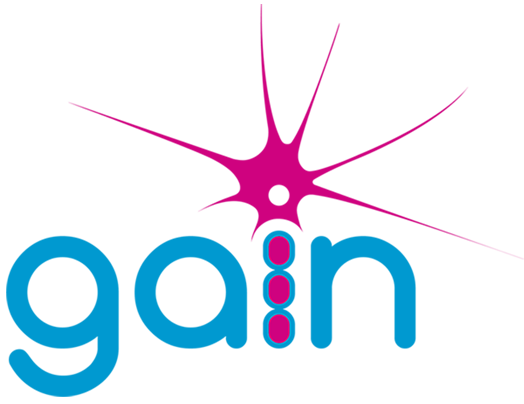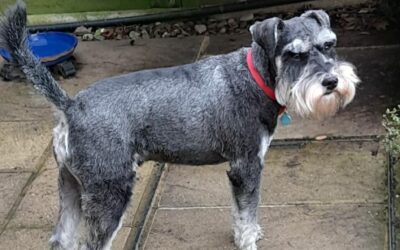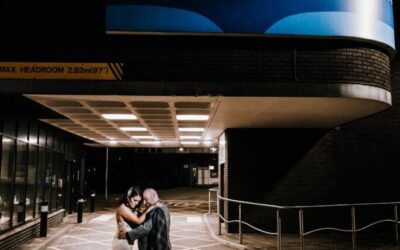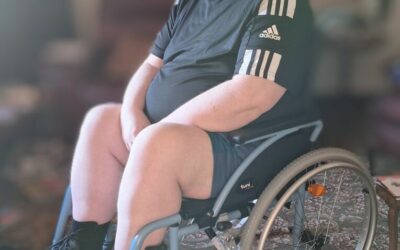Chapter One
GBS during the pandemic
On Wednesday 25th November 2020, after a few days of feeling unwell, Nick Harvey woke in the early hours of the morning and found his legs were totally paralysed. He tried to get out of bed and fell in a heap on the floor, unable to stand. After a weekend of bed rest, he returned to work, but found his symptoms were worsening by the time he got home.
The reality of my situation was quickly realised, and I was carried out of the house by my brother Matthew, being the only one strong enough to pick me up and carry me, as Devin was away in JHB on business and my Dad was on the phone to a neuro specialist for advice. I was rushed by my family to the nearest emergency unit on the neurologist’s instructions and underwent several tests including an MRI, after which I was swiftly transferred by ambulance to a specialist hospital with suspected GBS (Guillain-Barré syndrome), which was then confirmed by three specialists after several more tests. I was indeed suffering from what was becoming very apparent, a severe case of GBS as the paralysis was progressing swiftly up my body towards my chest (lungs) arms, neck and face. By 8pm that same evening, I was ventilated, unable to breath safely on my own and moved to the ICU unit.
Devin, my rock, on hearing the news within an hour of me being admitted to hospital, drove straight to the airport and got on the next flight to Cape Town. Then and there he moved permanently with his computer and the clothes on his back to Cape Town to be with me and my family where he has stayed.
As you will appreciate, I do not remember large chunks of my initial ventilation and the first several weeks in ICU through the battle for my life. I was placed in a heavily sedated state to cope with oral intubation. I received intravenous immunoglobulin treatment (made from donated blood that contains healthy antibodies) which was given to me intensively over several days to try to halt my immune system attacking itself.
Eventually the progression of the GBS did halt and entered the plateau stage. It had affected my whole body, rendering almost all of it paralysed but strangely keeping my touch sensation. The paralysis stopped at my mouth and fortunately did not reach my eyelids, which was to be a blessing in the days and weeks to come. I then underwent surgery for a tracheotomy some ten days later as it was clear I was on a long road to recovery and it’s a more manageable form of ventilation. It requires an incision in the throat to relocate the ventilator so freeing the mouth making it less invasive and claustrophobic for the patient. This also allows a reduction to the heavy sedation medications I was on.
I became more conscious and aware, as the sedation meds were titrated down and I was then able to use my eyes to communicate with my doctors, nurses, specialists, Devin and my family. My loved ones have not missed a day visiting me since I was admitted to hospital.
Although paralysed, I could still feel through my skin, and as my feet were the only part of my body without monitors and pipes, daily foot massages and tactile touch from my loved ones was a vital part of my initial recovery and kept me fighting daily.
I remained ventilated in ICU for 93 days in a body reliant on machines and tube feeding, during the height of the South African COVID-19 second wave.
The journey through ICU and the ever-present possibility of an infection or pneumonia or indeed contracting COVID-19 was a terrifying prospect for every single patient, staff member, my boyfriend Devin and my family visiting me. Access of family members to patients was only granted to very few during this time and only exceptional cases with stringent PPE protocols. In order to visit me, my family and Devin committed to the hospital that they would all bubble at home in complete isolation for the entire period of my ventilation. My physicians believe their access to me was critical to my survival. I believe this to be true. The hospital entered a surreal state of a very changed world. The kind of things you only see in the movies.
For a comparatively young person, in a body that could recover and heal in time, ICU is not the ideal place to spend 93 days. I was now lucid and mentally alert. Sadly and not without residual trauma, I was witness to countless souls’ departures from this realm to the next, who came in a steady stream into my ward over that period. Most died alone with no family in attendance or even a loved one holding their hand. I knew all their names, and, in a way, I was with them and could honour their lives and their passing. Each time, the brutality of a death was a reality check for me and a stark reminder of my own fragile vulnerability. The inevitable melancholy that sets in after a life lost around you and the accompanying sadness which often hit me at the most unexpected times but often at night when it got dark and things quietened down at the end of the day, was intense.
During my ICU hospitalisation I had on the whole, exceptional 24/7 care with my life literally in the hands of others. As I was a young, long-term patient with the potential of a full recovery, I think my prognosis helped the medical staff as they could see my painstakingly slow gains and improvements, giving them as much as it did me, “great hope”.
Despite having no voice due to the trachea ventilator obstructing my vocal cords, I could use my eyes to blink and communicate basic concepts using a signalling chart. Eventually with returning facial muscles and the help of intense speech therapy, I could smile and mouth words without sound for my caregivers to understand me or lip-read my requests and needs.
Your personal space bubble and any modesty you had or valued is very quickly shed and, in its place, grows a remarkable bond of trust and connection with your team of caregivers. It is a very intense, deep knowing which in my case was beyond verbal as you connect on a soul-to-soul level with the people caring for your every need, administering medication or performing the required protocols. Many of these caregivers took the time to know me and I them. They came to learn what I needed with one look or one mouthed inaudible word. You cannot but only be humbled and deeply moved by their care.
I am also grateful to countless multi-disciplined medically skilled professionals who as well as my nurses and doctors, also came in daily to the hospital to manage my Speech Therapy, Physiotherapy, Lung Therapy and my Occupational Therapy. These visits which I looked forward too, kept my long days seemingly shorter, challenged and varied. As the weeks passed, and I started formulating words and small sentences which helped me express myself but still without a voice, the lip-reading skills of my team was brilliant and vital to me.
I learned to swallow my own saliva as I had lost control of this natural reflex. I then managed a few drops of water out of a syringe and over weeks of therapy, built up to crushed ice, then jelly. Finally I was able to eat small regular portions of a smooth and soft diet. This signified the stage at which air could be allowed to flow over my vocal cords, giving me the ability to softly speak in a whisper for the first time in 55 days and I regained my voice. I used this milestone and new freedom to thank the staff by name, who had all gathered at the foot of my bed in celebration. Many tears of joy and appreciation were shared by all in that moment.
Soon after, I was, with the help of my speech therapist, able to video call my family and Devin to show them I could speak at last. I was able to tell them for the first time, how much I loved them and appreciated them. It was my liberation from months of my voice being silenced and living in my own head. After 93 days in ICU I was told that once I was off the ventilator, I could move to the physical rehab unit, as I would then be regarded as medically stable to transfer out of ICU. I was now eating and drinking a varied diet and my feeding tube was removed. My pulmonologist was a meticulous, caring and kind man who shared my love of Marvel movies and always had a few minutes to chat to me as well as my family. He was in charge for most of my hospitalisation and the total management of my ventilation, lung health, medical care and medicine needs. The day finally arrived, and he declared that I was ready to transition off ventilation, but it was now up to me.
Patients who are ventilated for extensive durations often don’t transition well off ventilation and I was no exception. It was incredibly hard, stressful and traumatic and went against every new instinct I had come to learn.
Here again I was blessed to have been in the care of Michael now for many weeks. He is a dad, a husband and had become my trusted friend and exceptional carer. He was also a highly qualified specialist ventilation professional nurse with vast experience from around the world and I shall never forget him. Michael coaxed and encouraged me to breathe again without the ventilator. It is the most challenging and scary process. He set firm targets for me and would not let me give in, but instinctively knew when I had had enough, and I needed assistance. At exactly the right time Michael asked, ‘Do you trust me?’ I nodded, and with a gentle, kind, knowledgeable firmness, he switched off the ventilator.
Your mind screams with panic as the machine stops beeping and audibly powers down. Michael just stood next to me hand on my chest and gently talked me through the tunnel of sheer terror. He got me to relax and just kept encouraging me to hand over control, to let go and to trust my own body to breathe on its own again. I did but only with this incredible human at my side. I finally was self-sustaining and breathing on my own. After 3 months there is no feeling like it. Days later I was moved proudly and personally to the physical rehab by Michael and handed over for the next phase of my recovery.
It had been a total of 6 months since I was struck down with Guillain-Barré syndrome, a rare condition I had never heard of before. I am working hard, 5 hours a day, 6 days a week on my intensive rehabilitation and slowly gaining movement in my upper body, including balance sitting, core strength, arms and fingers in my right hand. I can sit upright in a wheelchair for about 2 hours then I need to change position. I cannot walk but in time and with therapy this too will return. I am still much like a quadriplegic physically, so I need help with all daily living tasks. I have lost 20 kilos of muscle and body mass during my illness, but I am now eating well and have now gained a few kilos back thankfully.
As my body rebuilds itself, I have acknowledged its uniqueness, both in its failings, but also in my case the miraculous ability to repair itself. I have a long journey back to good physical health, but I consider it a privilege to have survived and have the opportunity to heal. You will appreciate too, I have had countless hours in my mind that was unaffected but trapped in my dysfunctional but healing body, to think, process and consolidate my thoughts. No doubt there will be many more hours of reflection to come.
Pressing questions I have pondered often. Are you naturally brave or are you given opportunities to step up, dig deep, beyond what you thought possible or even imagined? I have wondered, what makes one mentally/physically strong? Is strength only in the fit physical form of a strong body? Is strength ingrained in your DNA or is it your personality? Do the hurdles, setbacks, disappointments, and many ‘’if onlys’’ you experience and carry with you make you stronger in mind and body in a time of need? Are we, as humans, able to love unconditionally, instinctually, or are we given opportunities to see, recognise and then value beyond all else what love is in its purest form? Only then to find enough trust within yourself to love back deeply, vulnerably and without restrain or hesitation in return?
I know from these and many other conversations with myself this much for me is true:-
Nothing is guaranteed in life. No matter what your plans, efforts and hopes, you are not in control. You are but a traveller on life’s chaotic but magical journey which must be honoured by your soul in considered moments of tranquillity.
You can take from life, but you have to give back more in return than you take, as it is the only solution to all human existence and relationships on our fragile planet.
I know beyond a shadow of a doubt I am profoundly and deeply loved every day with sheer dedication of my family and my Devin, the love of my life. Their love has sustained me through my darkest hours, my desperate fears and many tears as I travel this uncertain, challenging journey. They are my reminder daily to look up, look ahead at the horizon and beyond. To focus to the future and the possibilities it holds and not to give up.
I am grateful to be alive and for all the messages, wishes and care sent my way.
Nick Harvey
Dictated to and written with the help of Michele Savage Harvey on 25th May 2021 by Nicholas Harvey (Day 180)
Chapter Two
The wonders of water
I have not updated my journey with Guillain-Barré syndrome and my recovery since May 2021. I am still based at the Faircape Rehabilitation Centre surrounded by a dedicated team of doctors, nurses, carers, occupational therapists, physiotherapists, cleaners and caterers as well as many more, in this well-functioning facility.
‘My Team’ as they have collectively called themselves see to all my daily living needs, medications and therapies that a recovering patient who has lost the ability to do daily tasks would need. I definitely realise how much I had taken for granted as a fit and able-bodied adult and how I performed basic daily tasks, actions and movements with very little thought, and my body obliged at my will in nano seconds.
As I am put through my paces by my therapists in the gym in a well-scheduled 4 hours a day program, split into mornings and afternoons, I have made it my mission to be ready and on time, as well as give my all on every occasion. Through my recovery I have also learned these rehabilitative support therapies are a privilege and not a given luxury for sufferers of GBS as well as other life-changing events and subsequent challenges, so I really value these sessions.
Recently, aqua therapy has been added to my rehabilitation protocols. The therapeutic value of water therapy is well-documented, and I have recovered sufficiently to participate in this activity. The prospect however of getting into a large body of water I must say was very daunting, but the complimentary value and very different type of exercise therapy would add immensely to my gym physiotherapy program, so this was a huge motivator. It is also a new sensation being in water while still exercising and adds not only to my physical recovery journey but to my mental wellbeing. It would make sense if I explained my readiness to get into the pool as I can now do a lot more with my upper body and torso, hips, arms, hands and my lung capacity has increased significantly.
Apart from the obvious apprehension on my first arrival at the very well-designed facility and equipped Aqua Centre, it still took a mind over matter approach to get into the water. As I am lowered into the pool in my swimming gear and buoyant collar, I am guided by a specially trained aqua physiotherapist who challenges my body in a completely different atmosphere of the heated pool. The feeling of the water slowly enveloping my body, flowing over my skin, my increased weightlessness and buoyancy was an incredible sensation. My affinity to water has never been in doubt and it is definitely one of my happy places, which made this therapy even more of an intense feeling for me. I reflected on the sports I had chosen to play and loved and noted almost all revolved around water. To float in the water gives me such a sense of freedom from my recovery body that I had not experienced in the longest time. I have more command over parts of my body in the water, which is very liberating, giving me a sense of being on my way back to a familiar place. Being home. To my amazement and great joy it was in my exercises I became aware of muscles responding I had not felt or used before now, activating and firing in the water. I was able to perform movement such as simulating walking in the water. The sensation was indescribable, and it immediately changed my goals for myself and allowed me to set a new horizon for my recovery and timelines.
Without doubt, aqua therapy has propelled my physical recovery to new heights. In my Getting Better Slowly (GBS) catch phrase used by our community of survivors the most significant issues I have found being in a rehab facility for as long as I have ( 8 months and counting) is the challenge of the length of the journey to health, in body, mind and soul. It is a constant battle and requires more than perhaps one can even imagine.
You can become frustrated, angry and frankly in great despair very quickly. Your mind can be your greatest ally, but it can also be your greatest enemy too. It can overwhelm you and sabotage your efforts and ability to see through each day, stopping you from finding reasons to continue to turn up for yourself and focus on and find the small changes, golden moments and gratefulness in each day.
It means I have to remain virulent with my thoughts, moods and interactions and recognise quickly if I am vulnerable to the darkness, sadness and frustrations of my recovery. That being said I still have really tough days, but I also have many more good ones which are what count.
Nick Harvey, August 2021
